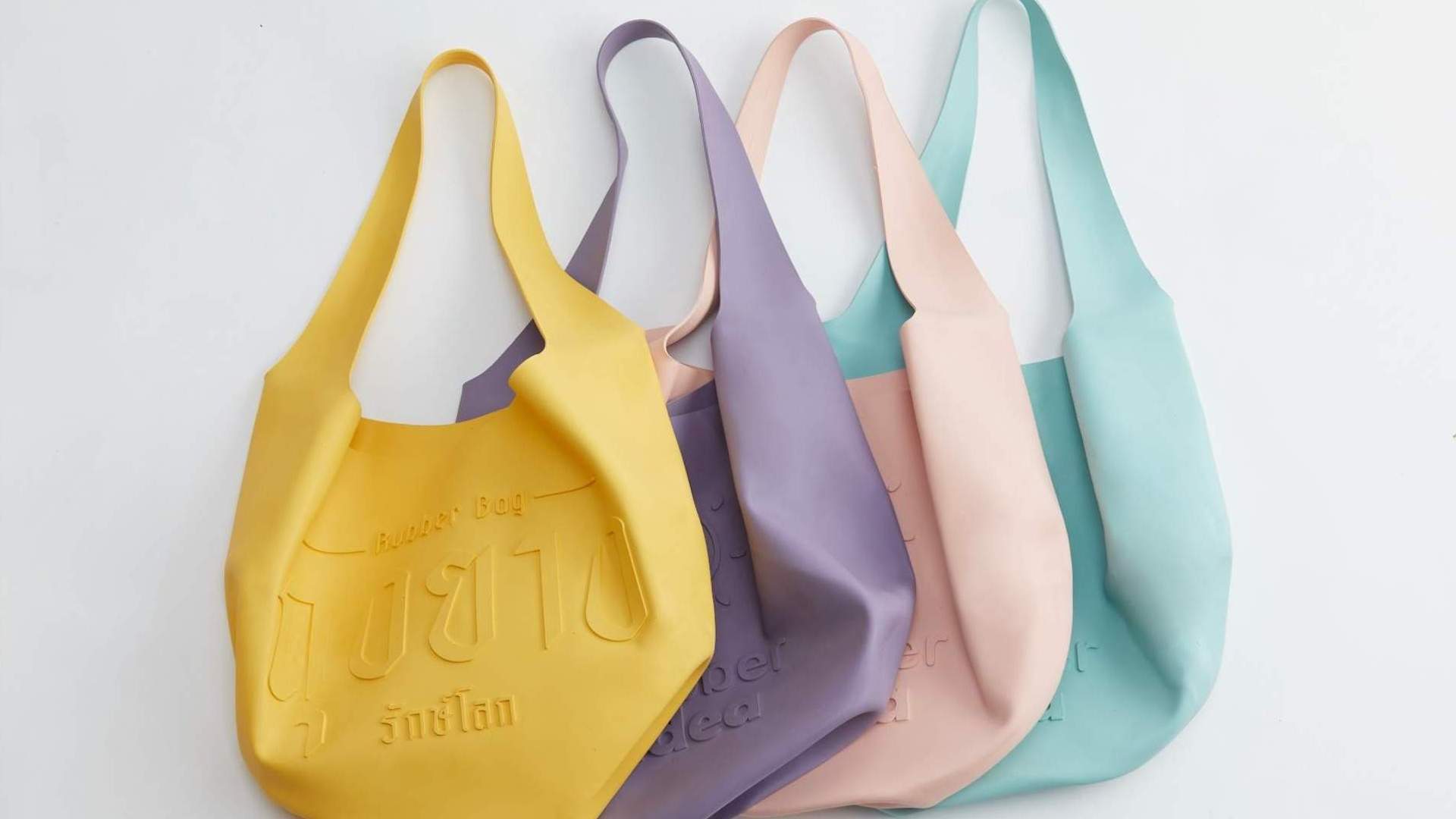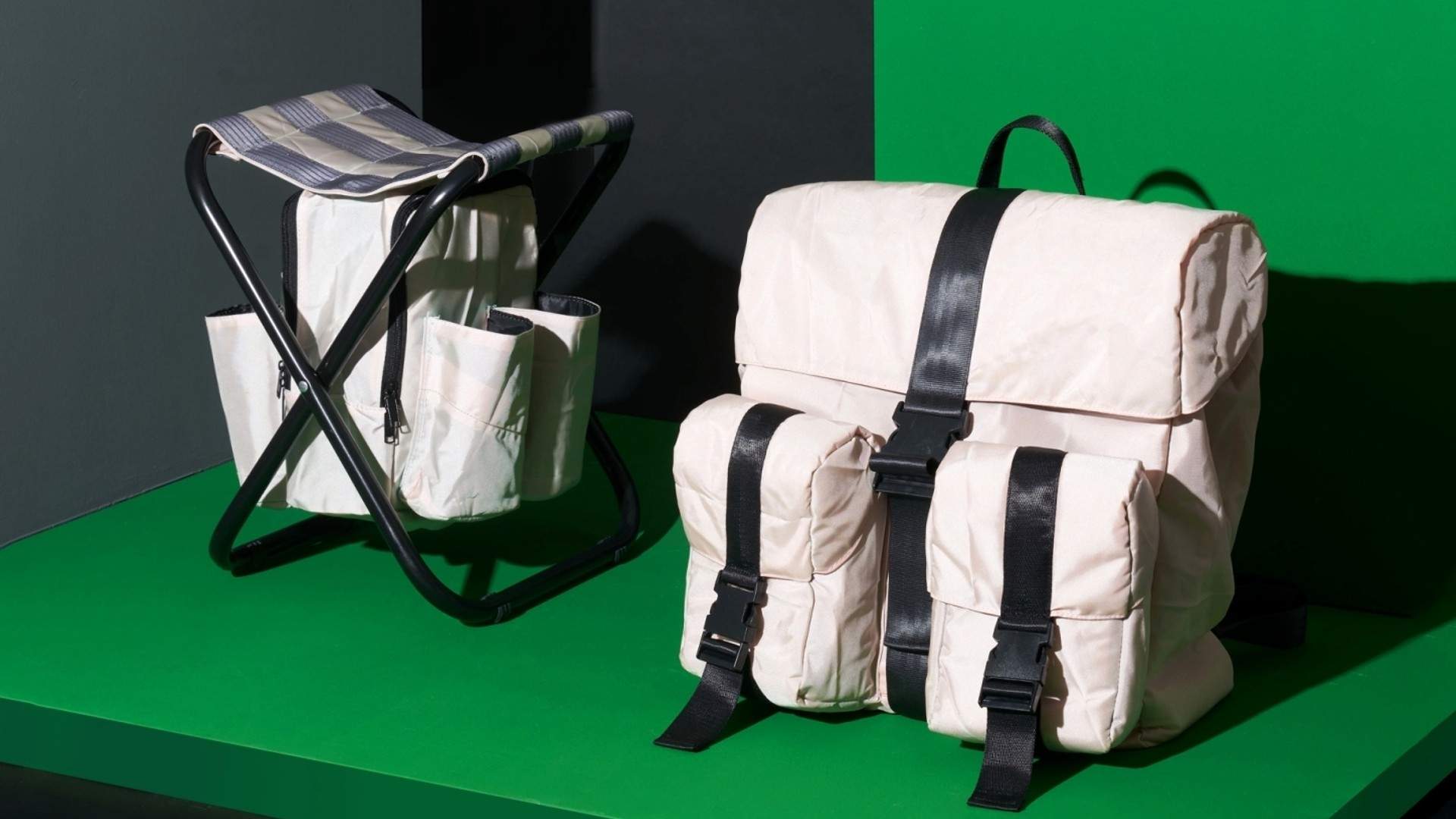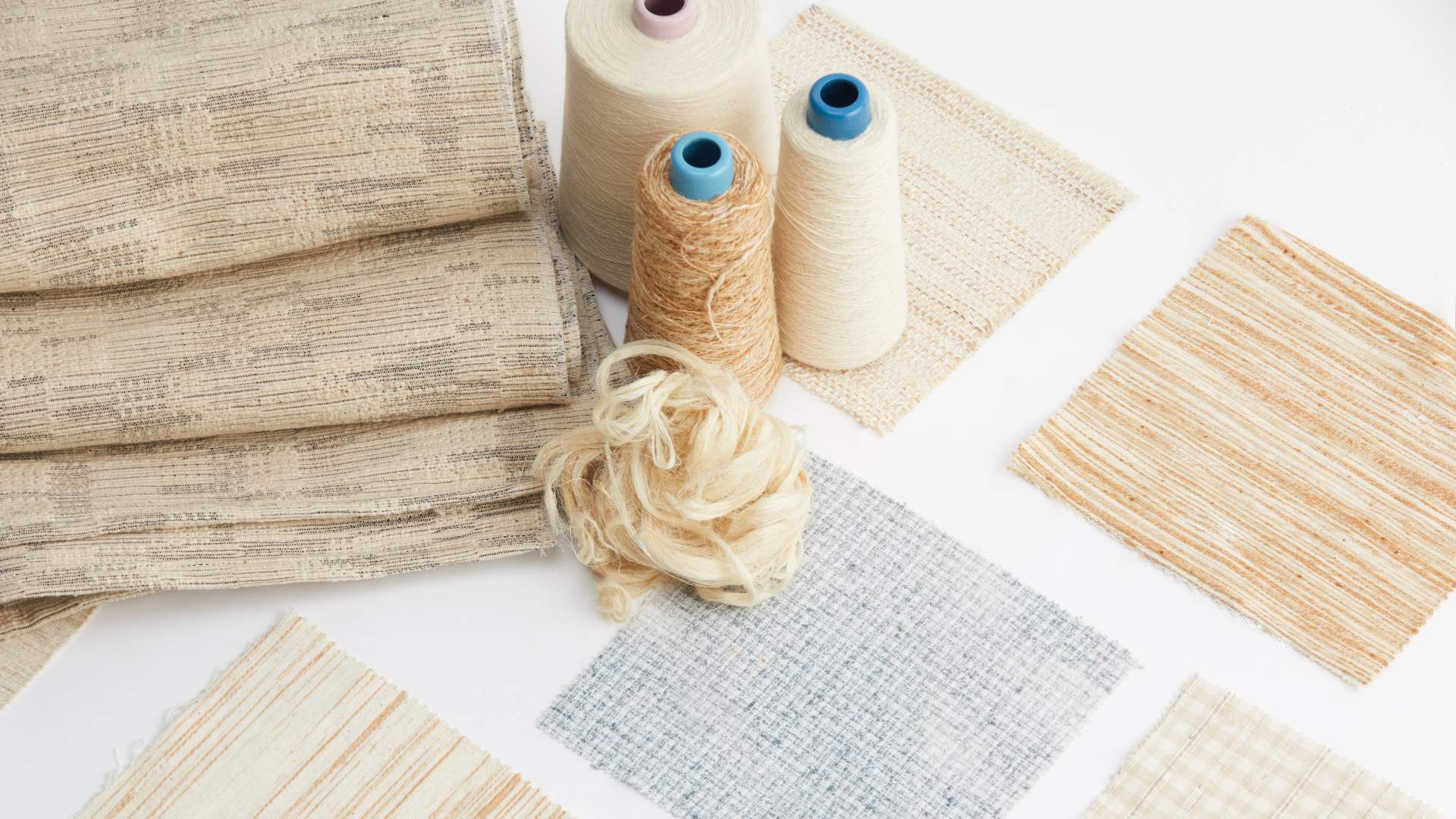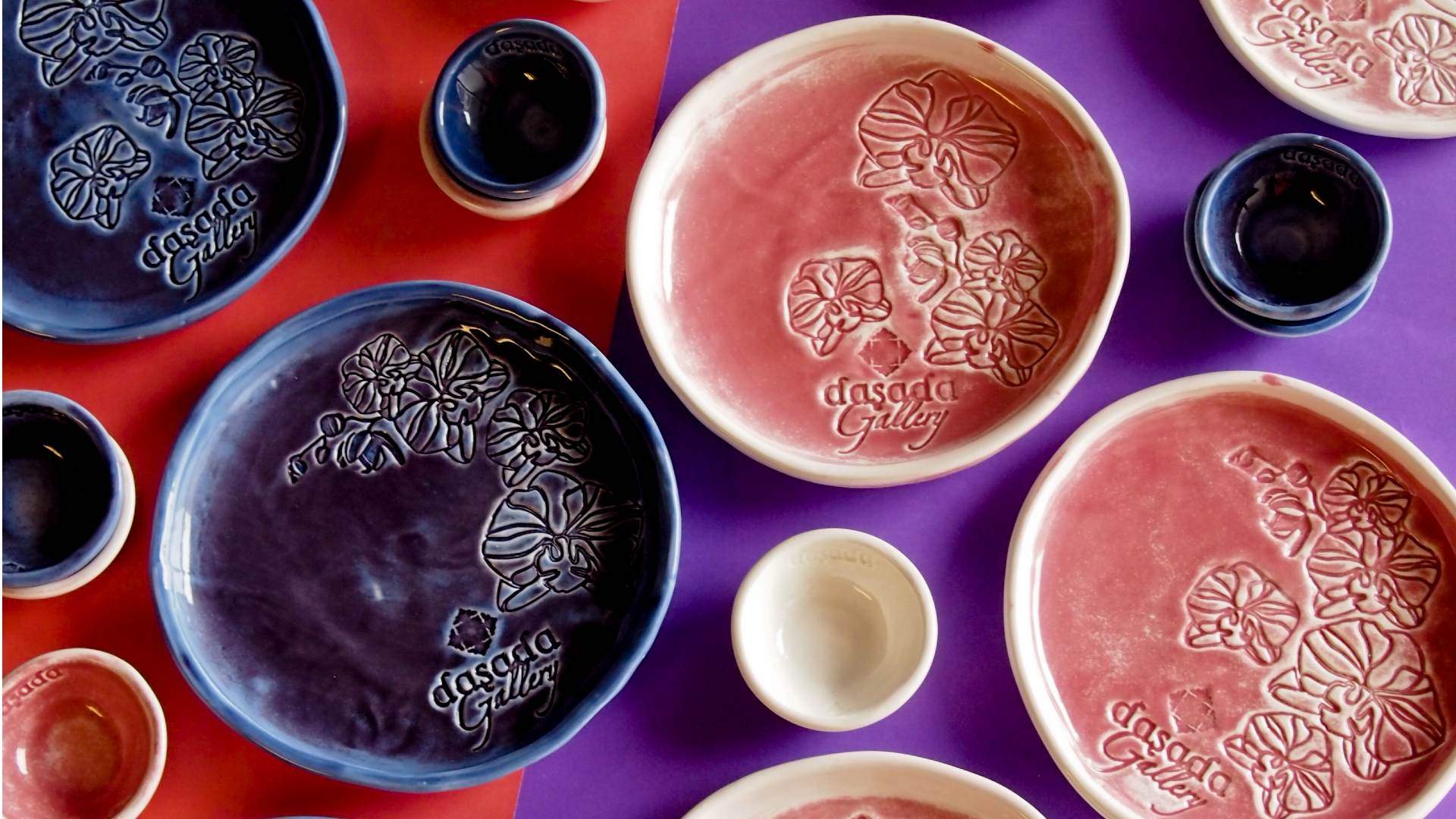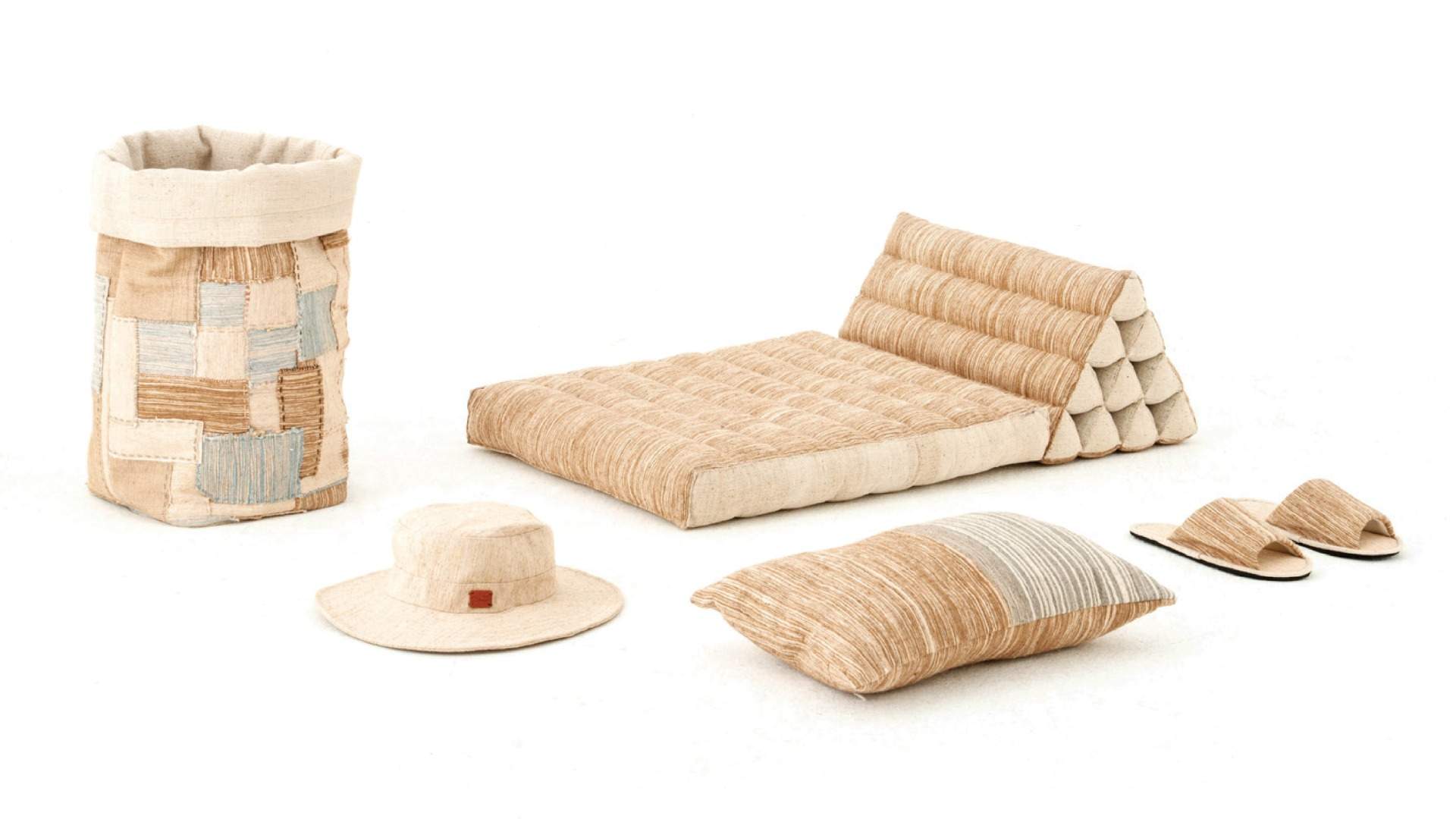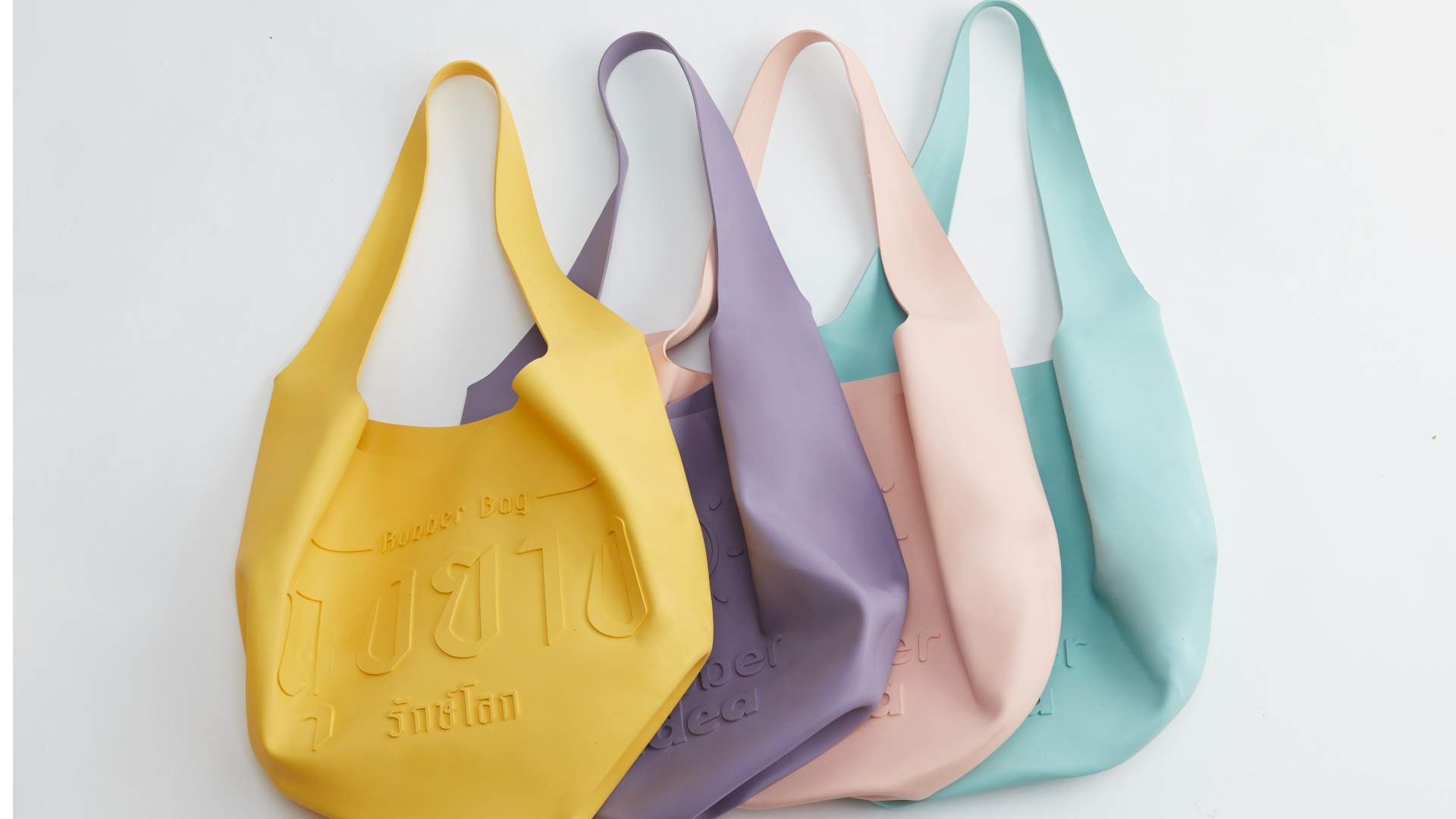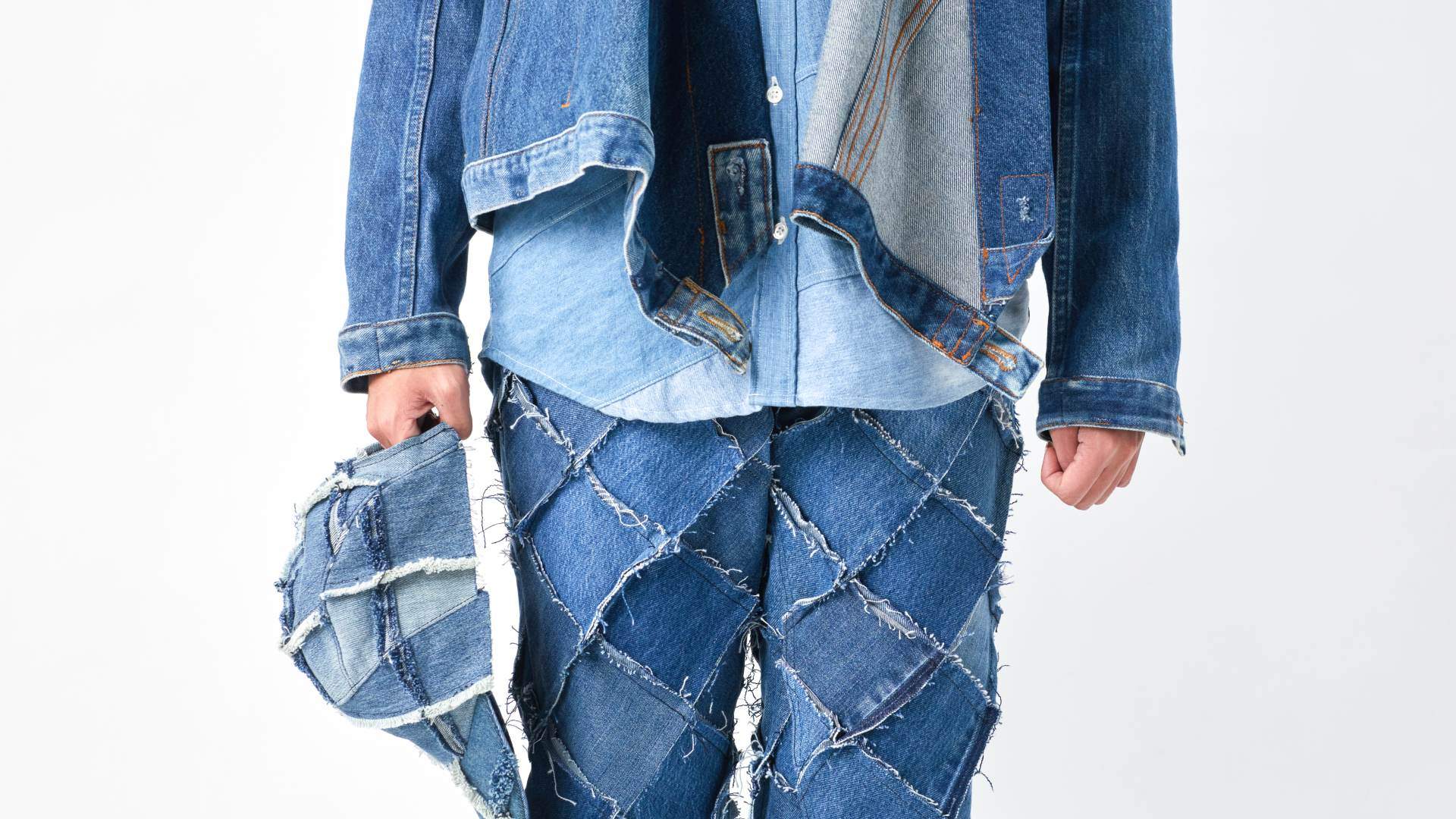Six Contemporary Lifestyle Brands That Are Turning Trash Into Treasure
These brands are repurposing agriculture and industry waste to create practical (and stylish) products.
In partnership with
Think of Thailand and you probably think of idyllic beaches, excellent food and lovely, welcoming people. But there's one more thing you can add to that list: trash. Specifically, agricultural and industrial waste. In the country's creative and industrial hubs, a group of environmentally conscious Thai brands are creating practical objects out of discarded materials and embodying the ethos of DEWA and DEWI, or Design from Waste of Agriculture and Industry — a method that uses design and creativity to both repurpose waste and minimise pollution. As the old saying goes: one man's trash is another man's treasure. And in this case, the proverbial trash has been repurposed to create treasure in the form of tableware, carry bags and eco-friendly upholstery.
Pineapple by-products, unused medical gloves, car parts and even food scraps are all being transformed into products that are useful, eco-friendly and aesthetically pleasing. And as the other old saying goes: waste not, want not. We've teamed up with Thailand's Department of International Trade Promotion to showcase six brands that are solving environmental problems and hitting consumer demand all in one go by turning garbage into gold.

THAI NUM CHOKE
Thailand has a huge pineapple industry and that mammoth crop leads to a whole lot of pineapple leaves ending up as waste each year. The unwanted leaves are usually discarded via burning, causing an extra kick of waste, too. But it turns out this fibrous material doesn't need to go up in flames.
At Thai Num Choke, pineapple leaves are transformed into fibres, yarns and even vegan leather before being reborn as bags, clothing and award-winning fabrics. Blended with industrial materials and hemp barks (another agricultural waste problem), the fabrics make for durable upholstery and beautiful, environmentally responsible leather. Thai Num Choke also uses natural dye sources and is looking at reclaiming other waste products to expand its innovative textile making.
LAMUNLAMAI
It's no secret that food waste is a big environmental issue. But what if that waste could end up back on the table — think, an egg cup made of eggshells, coffee accoutrements made of coffee grounds and a vase made of carrot pulp. At Lamunlamai, that's exactly what you'll find.
Taking waste from individuals, restaurants and industry, Lamunlamai creates artisanal ceramic tablewares, the shapes and subdued natural hues of which are made to echo their source material. Utterly unique and with exquisite attention to detail, each piece is a beautiful work of art for the table which harks back to the company's origins in creating custom pieces and art installations.
MUNIE
The Delight Collection by Munie has very humble beginnings: weeds and waste. In Thailand, water hyacinths infest city drains and need to be regularly cleared. As it turns out, those tough but elegant masses of weeds can be turned into natural fibres that are light, quick-drying and absorbent.
When woven into yarn with cotton scraps, this waste matter becomes a useful and beautiful fabric that can be used to make pillows, slippers, cushions, table-runners, hats and baskets. Munie supports a strong rural economy by investing in local workers, making its fabrics sustainable and socially conscious all the way along the production line.
RUBBER IDEA
Rubber Idea is a clever concept. In a post-plastic bag era, the 5 billion unused medical gloves that go to waste each year seemed like a golden opportunity to create recycled and reusable carry bags. After all, rubber is waterproof, easy to clean and the latex can be reconstituted and coloured in vibrant hues, giving you a functional and environmentally responsible bag that also provides a solution to a huge waste problem.
It's not just bags that Rubber Idea has mastered. It also has a line of pet products including accessories, temperature-adjustable bedding and chewable and snack-dispensing toys. Because why shouldn't your beloved pet live the same environmentally conscious lifestyle as you?

CHYWA
You probably think about petrol pollution and the fossil fuels that are used to power your car regularly, but what about the environmental impact from the actual car itself? Airbags alone result in tonnes of waste each year across Asia, Europe and the US. But they're a durable material: tough, wrinkle-resistant and made to withstand stress and hard knocks. In other words, ideal for the outdoors.
Chywa receives airbags and seatbelts from Thai garages and up-cycles them into outdoor lifestyle products. The range features stylish and functional camping gear including backpacks, folding chairs, shoulder bags and wide-brimmed hats. With tourism being an integral part of Thailand's economy, integrating sustainable practices to improve the ecological footprint of this industry makes complete sense.

RENIM PROJECT
Producing just one brand-new pair of jeans uses on average 7,600 litres of water and can create up to 60 kilograms of CO2 emissions. And when you think about how many new pairs of jeans are made each year, that's a lot unnecessary usage. With fast fashion being such a big polluter, consumers are wising up and looking for alternatives. The solution? Recycle, reduce and redesign denim via The Renim Project.
This Bangkok-based label raises awareness around denim waste through Thai craftsmanship. Using all scrap parts — including zippers, buttons and leather labels — the project reforms waste into stylish new fashion items, such as eye-catching patchwork clothing, bags, accessories and even placemats and table runners. The Renim Project also collaborates on limited-run items that have made their way into LA Fashion Week.

Keen to explore more waste-embracing Thai brands? For more information, visit the DITP website, or explore more of Thailand's booming creative scene here.
